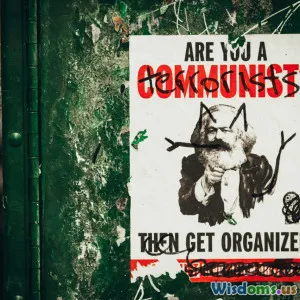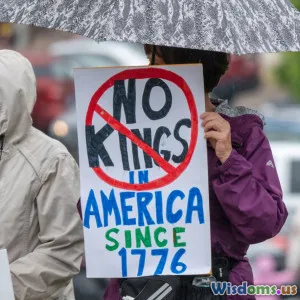
Breaking Down Childhood Socialization Into Social Contracts
15 min read Explore how childhood socialization forms unwritten social contracts, shaping lifelong behavior and relationships through practical examples and research. (0 Reviews)
Breaking Down Childhood Socialization Into Social Contracts
Introduction: The Invisible Bonds Each Child Learns
Imagine playground laughter echoing between swings, a quiet apology whispered after a squabble, a teacher reminding the class to wait their turn. What drives these behaviors? While we often attribute childhood actions to parental guidance or innate temperament, there's a deeper architecture at play—a hidden network of social contracts crafted through the complex process of childhood socialization.
From a young age, children internalize a collection of unspoken agreements: "don't take without asking," "help a struggling friend," "respect your elders." These implicit understandings—social contracts—form the blueprint by which individuals cooperate, coexist, and contribute to society. Yet, the very formation of these contracts is something most of us rarely pause to examine deeply.
In this article, we will dig beneath the surface. We'll explore how everyday interactions serve as the crucible for these powerful social contracts, leaning on contemporary studies, cultural insights, and real-world stories. Prepare to see childhood socialization in a new light—no longer as a passive absorbing of habits, but as an active, evolving construction of the 'rules of society.’
Understanding Social Contracts: More Than Just a Theory
French Enlightenment philosopher Jean-Jacques Rousseau famously wrote of the social contract, suggesting that order is maintained because people collectively agree—sometimes silently—to abide by certain rules. Traditionally, this concept dissected the formation of governments and societies. However, when reframed for childhood development, it becomes a lens for understanding how individuals form their first agreements about acceptable behavior.
What makes this important? Unlike formal contracts written on paper, these child social contracts are invisible, formed through language, gestures, rituals, and shared experiences. Psychologist Lawrence Kohlberg suggested that morality evolves in stages. Before children can debate laws, they're learning—through trial and error—what their communities expect, tolerate, or forbid.
Example: The First Rule of the Sandbox
Consider a preschool playground. A child takes another’s scoop without permission. The aggrieved reacts—maybe through tears, perhaps by telling a teacher. The adult intervenes, explaining, "We take turns." A negotiation ensues or a timeout is given. Even without realizing it, each participant is shaping, reinforcing, or contesting the group’s social contract around property and fairness.
This process is the foundation for more complex forms of democracy and cooperation later in life, teaching critical skills such as self-control, empathy, and collective negotiation.
The Stages of Childhood Socialization: Building Blocks of Social Contracts
1. Family Foundations: The Earliest Agreements
Family is a child's first society. In this microcosm, rules and roles are often subtle but potent. Consider simple routines—"wash your hands before dinner," "say 'please' and 'thank you.'" These aren't merely polite suggestions; they are foundational contracts that foster respect, sanitation, gratitude, and harmony.
According to a 2017 Pew Research Center survey, 71% of parents ranked teaching responsibility and manners as a top priority, reflecting a near-universal commitment to transferring social contracts. Children observe adult interactions—how parents negotiate with one another or handle conflict—which further embeds expectations of cooperation or dissent.
Example:
- When a child promises to complete homework before watching TV, a rudimentary contract is established, teaching delayed gratification—a skill central to societal participation.
2. Peer Play: Negotiating the Rules
Play—from tag to board games to group make-believe—is a fertile training ground for negotiation, compromise, and rule-following. Unlike within the family, where hierarchies are clear, play-based environments often require democratic consent.
Developmental psychologist Lev Vygotsky emphasized the "zone of proximal development," where children learn best from peers just ahead of them in skill. Through cooperative play, children practice collective rule-making. When someone refuses to follow the rules, the entire system is threatened. Peer pressure and consensus mechanisms enforce the contract—players may exclude or educate the rule-breaker, mirroring adult community enforcement.
Real-World Insight:
- In a classic 1980s observational study, researcher William Corsaro noted "interpretive reproduction": as children play, they actively reinterpret adult rules, sometimes creating subcultural contracts, such as the 'no boys allowed' in a temporary treehouse. These deals are just as binding to their creators as governmental constitutions.
3. School as a Society: Institutionalizing Contracts
School is often a child’s first large-scale social experiment. Here, behavioral contracts are both explicit (school rules, codes of conduct) and implicit (classroom etiquette, queuing for lunch). These collectively guide daily life, offering scripts for inclusion and exclusion.
A 2019 American Psychological Association report found that children who internalize clear behavioral expectations tend to be more successful academically and socially. When rules are discussed transparently—and children participate in making class agreements—they feel more committed to upholding them.
Case Study:
- The Responsive Classroom Approach encourages teachers to co-create "Hopes and Dreams” contracts with students each fall, resulting in improved cooperation and a 30% reduction in reported disruptive behaviors.
4. Digital Interaction: The New Frontier of Contracts
21st-century childhood now includes digital playgrounds: group chats, multiplayer video games, social media platforms. Online, children navigate new contracts—some codified, many more emergent.
Example:
- In massively multiplayer games like Minecraft, young players form alliances, trade resources, and enforce group rules. Online bullying or 'griefing' breaches these contracts, sometimes resulting in ostracization or digital 'banishment.'
- "Kids have always created rules for play, but digital platforms amplify the reach and consequence of these contracts," notes researcher Katie Salen, co-author of Rules of Play (2004).
Socialization Mechanisms: How Social Contracts Form and Stick
Modeling and Observation
Children are astute observers. Mirror neurons fire when they watch adults or older peers navigate a social exchange. The famed 1961 Bobo doll experiments (Bandura) showed children quickly imitate not only actions but the moral stress attached to them—reward, punishment, praise, or disgust.
Implication:
- Parents apologizing for a mistake create a norm for accountability—a contract that mistakes aren't fatal and can be amended.
Reinforcement: The Power of Consequences
Social contracts are solidified through consistent enforcement. When kindness is praised or bullying is punished, behaviors are coded into memory.
Data Point:
- According to the Centers for Disease Control and Prevention (CDC), schools that cultivate environments promoting positive reinforcement over harsh punishment see up to a 23% increase in prosocial behaviors (sharing, helping) after just one semester.
Storytelling and Cultural Traditions
Stories—whether folktales, movies, or family anecdotes—act as ‘moral laboratories,’ encoding social contracts into memorable narratives. "The Boy Who Cried Wolf" teaches about honesty; superhero tales reinforce responsibilities to the greater good.
Real-World Insight:
- In Indigenous Australian communities, the Dreamtime stories link cosmic order directly to behaviors, communicating contracts between individuals, ancestors, and the land.
Symbolic Rituals
Rites of passage—first day of school, learning to ride a bike, or participating in family holidays—mark the acceptance of new roles and corresponding contracts.
Quote:
“Every ritual tells the child: You now belong to something bigger, and these are our promises to each other.”
— Dr. Linda Grover, child anthropologist
Real-World Outcomes of Early Social Contracts
Empathy and Prosocial Behavior
Kids primed in environments that stress cooperation and kindness display increased rates of empathy. Research from Yale’s Childhood Social Cognition Lab suggests that even at age three, children can identify unfairness and will act—sometimes at a cost to themselves—to restore equity if empowered by their peer group’s contract.
Example:
- In experiments, preschoolers given tokens can be observed giving up their own rewards to comfort a child who is upset, even with no adult prompting.
Navigating Diversity and Inclusion
As societies become more multicultural, the flexibility of social contracts is vital. Studies reveal that children exposed to diverse peers—different languages, abilities, or backgrounds—tend to create more inclusive group agreements, questioning rigidness and updating what’s “normal.”
- The Harvard Graduate School of Education notes that early, meaningful contact with diverse classmates predicts adult openness and civic participation.
Conflict Resolution and Resilience
Children learn to handle disagreement by testing, breaking, mending, and sometimes renegotiating social contracts. Those given opportunities to practice these skills show greater resilience later in life—handling workplace disputes or community disagreements with less anxiety and more creativity.
Case Example:
- In a longitudinal study at Stanford University, children bullied in early grades showed greater coping skills if interventions refocused on discussing and revising group contracts, rather than on individual punishment alone.
Barriers to Healthy Social Contract Formation
While most children construct positive contracts, obstacles can disrupt this trajectory:
Breakdown at Home
Volatile or abusive home environments may model inconsistent or destructive contracts. A child who sees rules rarely enforced or respects routinely ignored may struggle accepting legitimate boundaries elsewhere.
Digital Echo-Chambers
While digital connectivity is typically positive, it can foster closed circles where harmful contracts form—such as cyberbullying “code” or exclusionary tactics.
Cultural Misalignment
Migrant or minority children sometimes experience conflicting contracts between home culture and mainstream society, leading to confusion or social withdrawal. Supportive bicultural integration programs show promise in bridging these gaps—inviting parental involvement and dialogue.
Supporting Positive Social Contract Development: What Adults Can Do
How can caregivers, educators, and communities foster productive, resilient social contracts for all children?
Model Transparency and Fairness
Adults should regularly articulate not only their expectations but the "why". For example, a teacher saying, "We listen quietly so everyone can learn" links behavior to collective wellbeing.
Include Children in Rule-Making
Classroom or family agreements negotiated with children gain greater buy-in and accountability. Evidence from university child development labs suggests co-constructed rules reduce chronic behavior issues by up to 40% compared to top-down mandates.
Leverage Story and Ritual
Frequent exposure to diverse stories—and accessible rituals marking growth—helps nurture empathy, curiosity, and bridge-building.
Embrace Mistakes and Repair
Normalize contract repair (i.e., apologies or renegotiation) after conflicts, teaching children that social contracts are living, adaptable, and contingent on participation.
Encourage Real-World Stretching
Facilitate opportunities for kids to work in diverse groups, serve their communities, or participate in programs like Scouts, Girl Guides, or afterschool team projects—each a laboratory for practicing evolving social contracts.
Conclusion: Shaping the Social Architects of Tomorrow
Peel back the layers of how any group—family, school, peer circle—functions, and you’ll discover an intricate lattice of social contracts negotiated in childhood. Far from being a passive process, socialization is a crucible in which the raw materials of empathy, justice, and belonging are fused into robust social frameworks.
If we view childhood not as a rehearsal but as the primary act of social contract-building, we elevate the task of guiding the next generation. Through conscious modeling, open dialogue, and intentional support, parents and educators can empower children not just to inherit society’s contracts, but to dream, revise, and expand them—building more empathetic, resilient, and inclusive communities for all.
As you observe the next playground dispute or sibling negotiation, remember: you’re witnessing not just children at play, but the forging of the very bonds that hold us all together.
Rate the Post
User Reviews
Other posts in Sociology
Popular Posts
















